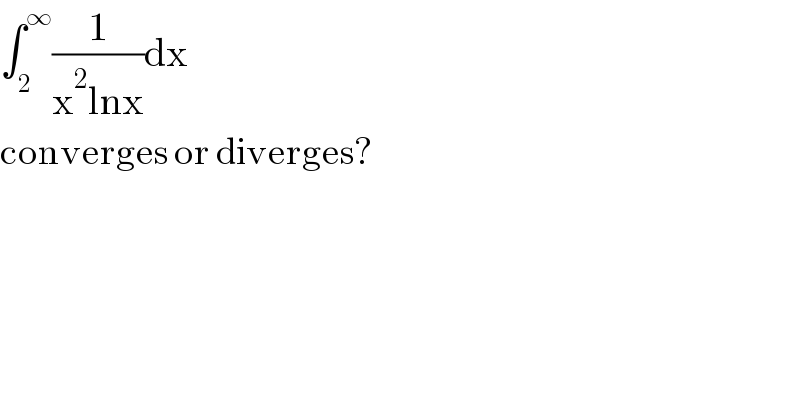
Question and Answers Forum
Question Number 138716 by floor(10²Eta[1]) last updated on 17/Apr/21

Answered by mathmax by abdo last updated on 17/Apr/21

| ||
Question and Answers Forum | ||
Question Number 138716 by floor(10²Eta[1]) last updated on 17/Apr/21 | ||
 | ||
Answered by mathmax by abdo last updated on 17/Apr/21 | ||
 | ||
| ||